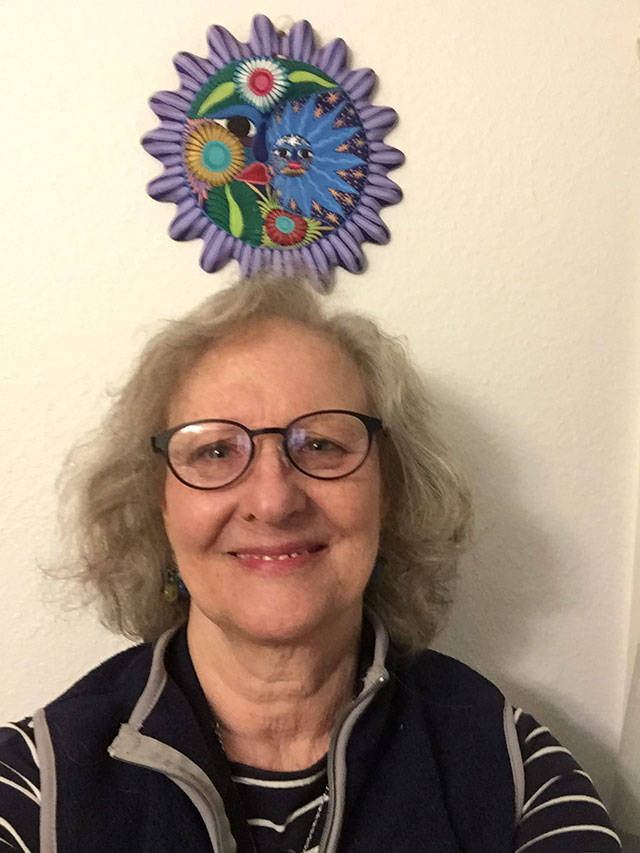I have been reading with interest the community responses in The Beachcomber to Shelley Simon’s Sept. 10 letter to the editor with her poignant question about how she could possibly feel patriotic in these chaotic times (“So I Should Love my Country? Why?”).
The days prior to a presidential election are intense, especially so in the context of this COVID crisis, climate disruptions, economic recession, and the increasing ill-will within our society. It’s a wonder any of us can get out of bed at all. And yet we are faced with important choices to make by Nov. 3.
No one can tell anyone else how to feel. But we can be open to thinking deeply about the complexities of our situation and our options for moving forward.
In his response letter, Oct. 1 (“Possible to be both patriotic and critical of current political culture”) Terry Sullivan made a compelling argument about our privilege and responsibility as citizens of a democratic republic to bring our concerns forward and work for change. An educated, informed public willing to contribute to difficult deliberations is necessary for progress. Yet change can be an arduous process.
Women won the right to vote only in 1920 after 100 years of trying. Much of Justice Ruth Bader Ginsburg’s legal career was spent questioning and dissenting against the unequal treatment of women under the law. She would want the rest of us to have the courage of our convictions and confront injustices nonviolently.
The same is true for the Black Lives Matter movement, launched after 400 years of discrimination despite Emancipation, the 1954 Brown vs. the Board of Education decision to desegregate schools, the Civil Rights Act of 1964 and the Voting Rights Act of 1965. And now we are facing a reckoning because of our violent discrimination. Why?
There seem to be cycles of corruption and correction, self-interest vs. the public interest. We are now in another alchemical crucible: we will either be refined or destroyed by so much heat and pressure. Which will it be?
Political work is emotionally exhausting. How can we not feel disillusioned when we know we are being lied to and manipulated by our leaders? Their strategy of division is not patriotism but nationalism: Us versus Them. If patriotism can be defined as love of country, nationalism is the fear, hate and exclusion of others and the insistence that we can act in isolation against the world.
By the time I graduated from college, both Robert and Jack Kennedy had been assassinated and Martin Luther King was next. In 1968, Nixon’s National Guard shot students at Ohio’s Kent State University who were protesting the Vietnam War. I was horrified as well as furious, so I became a journalist and then a social worker to advocate for vulnerable people and for system change. Now every gain we have made is at risk.
We must demand the rule of law and equal treatment under the law. That is the definition of liberalism. We must act with integrity in defense of science and the planet and the American experiment in a multicultural democracy.
Winston Churchill said that democracy is the worst form of government except for all the others. And he counseled us to never give up. Stand up for your values and country, speak out for decency. Under stress, instinct calls us to fight, flee, or freeze – yet we must search for the path of reason, compassion, and resistance to violence.
How do we find compromise and balance when truth and information itself is under attack? Those tactics are designed to discourage voters. Don’t fall for it. Don’t stand for it. Get your information from reputable, factual sources. Don’t think your vote doesn’t matter. In 2000, Presidential candidate Al Gore lost the deciding swing state of Florida by 537 votes and a suspended recount.
President Kennedy inspired me with “Ask not what your country can do for you; ask what you can do for your country.” Start with being curious and engaged with possibility. Question your assumptions. Find an issue you are passionate about and get involved. Register to vote and vote at every opportunity. People are still dying for that right.
— Lynn Carrigan is Professor Emerita, University of Washington School of Social Work and a commentator of Brown Briefly, on Voice of Vashon.



